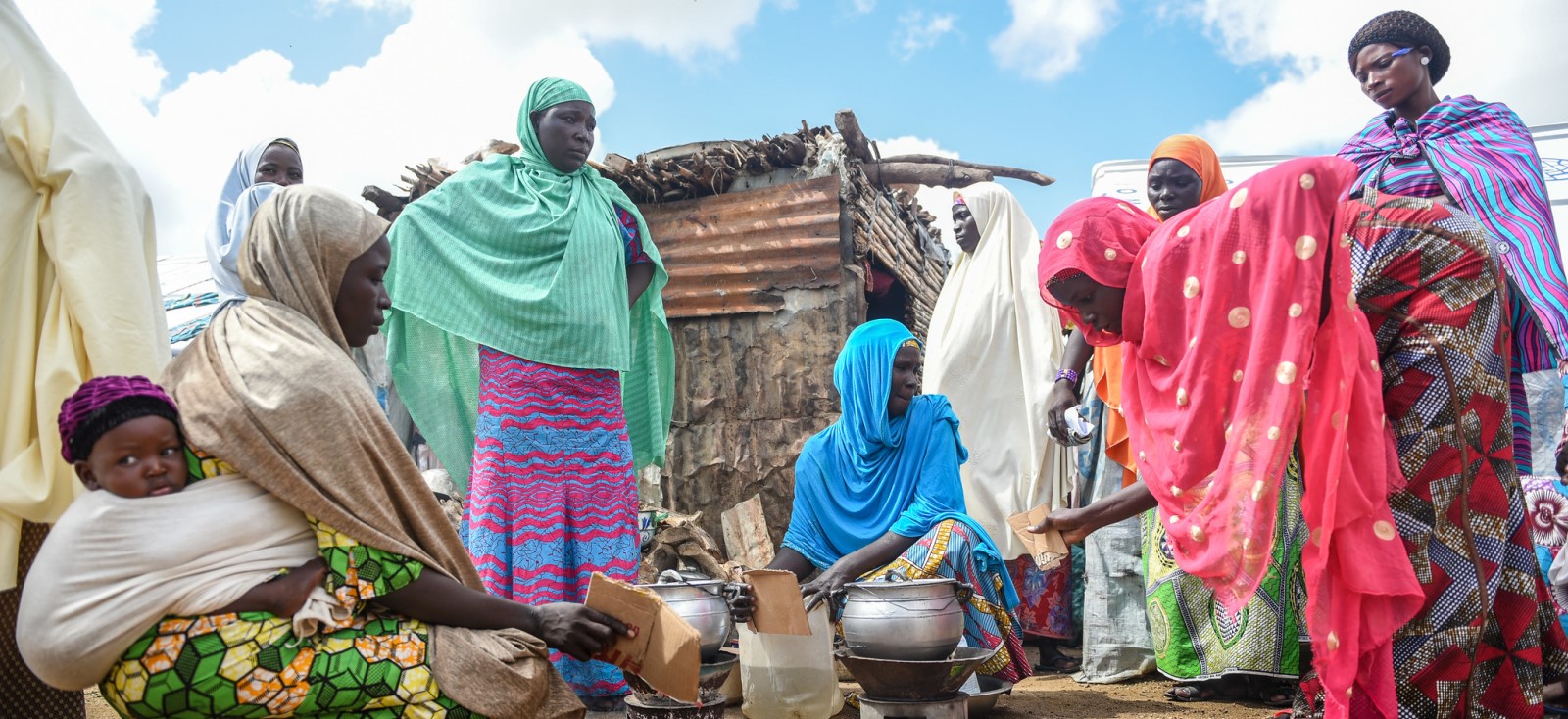Addressing Maternal Mental Health and Child Undernutrition in Nigeria through Psychological Support

Nursing mother preparing food | 2018 European Union photo by Samuel Ochai via Flickr
Study Context
Maternal mental health is a serious yet neglected problem in developing countries, posing threats to maternal and child health and well-being (Haithar et al., 2018). Globally, maternal depression affects 15-57% of mothers (Shidhaye and Giri, 2014), with even higher prevalence of up to 71% among mothers of undernourished children (Abdullahi et al., 2021; Haithar et al., 2018; Stewart et al., 2011).
This project seeks to implement Problem Management Plus (PM+), an evidence-based psychological intervention introduced by the World Health Organization, in the context of a malnutrition treatment program, to address the crucial link between maternal mental health and child undernutrition. PM+ is designed for individuals experiencing stress, emotional difficulties, and mild to moderate mental health disorders, addressing both psychological and practical problems related to maternal mental health and caregiving. Delivered by trained non-specialist community health workers (CHWs) over six sessions, PM+ integrates cognitive-behavioral and problem-solving approaches. Multiple studies demonstrated PM+’s efficacy among distressed populations in Nepal and Kenya (Bryant et al. 2017; Jordans et al., 2021), but its effectiveness among caregivers of young children has not been explored.
Study Design
This study will implement a randomized control trial (RCT) targeting a sample of 1,000 mothers/caregivers of undernourished children under five years old, with at least mild common mental health symptoms. Conducted with partner organization Taimaka’s existing community-based management of acute malnutrition (CMAM) program in the outpatient setting of northeastern Nigeria, caregiver-child dyads will be recruited from Taimaka’s outpatient program of CMAM, which provides treatment for up to 8,000 cases annually through primary health centers. Participants will be randomly assigned to either the treatment group, receiving PM+ alongside standard care, or the control group, receiving only standard care for acute child malnutrition.
The primary outcomes are: 1) maternal mental health as measured by the General Health Questionnaire (GHQ-12) and the Patient Health Questionnaire (PHQ-9); 2) caregiving and child-feeding practices (e.g., age-appropriate breastfeeding and complementary feeding practices, caregiver-child interactions, and hygiene); and 3) children’s nutritional status including anthropometry and recovery rates and time. Intermediate outcomes, such as women empowerment, maternal capability, parental investment, and household expenditure patterns, will also be assessed.
Results and Policy Lessons
Results forthcoming.

